Paul Voss has taken over the management of European Aluminium. What was his path there, what fascinates him about this material, and how does he see his tasks?
"Aluminum is a material that is pretty easy to like"
ALUMINIUM: Mr. Voss, as an Austrian, I am tempted to pronounce your name in German. What is correct?
Paul Voss: I get this question often. My grandfather was German, so I speak a little German myself. He emigrated to England, I myself was born there, grew up mostly in Canada with summers in England and partly in France. So my family name is pronounced very differently but I always go as Paul.
Why don't you give me a brief description of how you ended up with aluminum?
Paul: I have to go back a few years for that. I spent my 20s traveling a lot after college. I lived in South Korea, in Guatemala, a lot of places. Finally, I arrived in Brussels with my backpack – with a few vague ideas about the European project, which had always fascinated me. Like many people, I didn't actually plan to stay longer than six months. Now it's been more than 15 years, and most of the time I've been involved in European affairs, as a lobbyist, as an association leader, mostly around energy efficiency and renewable energy. For a couple of years I worked for a large Danish clean tech company. Finally, I headed a European association for district heating for seven years. When I felt I wanted a change, the offer to work for European Aluminium came at just the right time. The job combines the two issues that are important to me: Europe and energy.
You have described yourself as a lobbyist. Does that describe your new job?
Paul: I will continue to be a lobbyist, but of course it's more than that. In the Anglo-Saxon world, by the way, the term does not have negative connotations – in France, for example, it is almost a four letter word. I do think, though, that the director general of such an association must be a lobbyist for the issue, the central advocate, if you want, for an industry. But of course there are other aspects.
"When I felt I wanted a change, the offer to work for European Aluminium came at just the right time. The job combines the two issues that are important to me: Europe and energy."
How do you define them?
Paul: In my eyes, there are three concentric circles. The inner circle is the association itself. There are about 30 people working at European Aluminium, and I will play a certain role in how they feel about their work. And that, in turn, is decisive for how one feels about one's life. So I have a big responsibility to enable my colleagues to have an environment in which they can do good work, but also enjoy it.
The second circle is community – because it has to be more than an industry, it has to be a community of people, organizations, common ideas and principles. Shaping and preserving that community is part of my job, and it's really important to me. I've taken on a huge responsibility, and I feel it. But at the same time, I'm really looking forward to it.
The third circle then has to do with classic lobbying: the large field of national, European and international stakeholders.
What fascinates you about aluminum?
Paul: When I was asked if I would take on the post as Director General, I asked myself two questions: Do I believe in it? And: Is it important? Aluminum is a material that is pretty easy to like. The circularity, the light weight, the many different uses – yes, I believe this material has a very bright future. And is it important? I'm convinced that there will be no energy transition without aluminum. So, helping to ensure this sector stays strong and healthy is definitely important.
"When I was asked if I would take on the post as Director General, I asked myself two questions: Do I believe in it? And: Is it important?"
What do you expect to happen in the coming years?
Paul: The pace of change will continue to increase. From the perspective of five, seven years ago, the world is already almost unrecognizable. For me, one thing above all is absolutely clear: The green energy transition must accelerate significantly – there is no going backwards.
This is also a matter of personal concern to me. I have children myself, and the question of what kind of world they will live in is important to me. We need to focus on the positive changes we see. And on the things we can influence. That includes making sure that our industry embraces change, that it continues to reinvent itself. So we also need to provide framework conditions in which that can happen. This includes a suitable regulatory environment and financial support for innovation. Bold, coherent industrial strategies have never been more important than in today’s changing world.
A common European approach would also be helpful for this. Can you be satisfied with that?
Paul: As a student, of course, I had a naive, romantic idea of this European idea. 15 years later, I still believe that European cooperation is much better than any alternative. It's very easy to blame European politics when something doesn't work but the European values and principles are also what drive our own industry.
Is Europe perfect? Of course not. Are we perfect? No. But cooperation is our best hope to produce something of sustainable value and I remain optimistic, no less than I was 15 years ago. And I am proud that this industry employs people in Europe, that it produces valuable products. Europe needs industry, and it also needs to preserve the European values behind it.
Interview: Bernhard Fragner.
